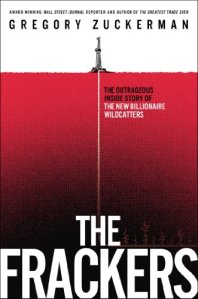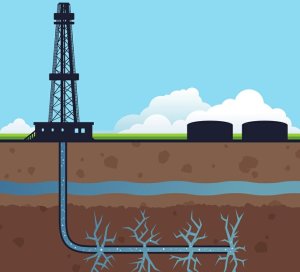COMING SOON: THE FRACKERS, the untold story of the tycoons behind the US fracking controversy.

With the debate raging around fracking and its financial and environmental consequences, Portfolio Penguin is bringing you a new exciting book this November that tells the story of how the fracking boom came to be from its roots in the US.
The Frackers by Gregory Zuckerman, bestselling author of The Greatest Trade Ever, tells the untold story of the tycoons behind the US fracking controversy.
The Frackers is a riveting narrative of how a group of risk-takers ushered in a new energy age. These individuals transformed the economic, environmental and geopolitical course of the US and the world, making a fortune in the process. It’s a saga that has unfolded on barren rocky fields, in the cluttered pickup trucks of visionary geologists, and in Wall Street boardrooms.
US oil and gas output is up about twenty percent since 2007, making the country the world’s fastest growing energy producer. Daily production is expected to hit ten million barrels by the end of 2015, equal to what Saudi Arabia currently produces.
But some of the very drilling methods that have been a boon to consumers and businesses, such as fracking, also have brought potential environmental danger. A debate is heating up about how serious the dangers are and whether the individuals at the vanguard of the movement will be remembered as much for their environmental impact as the remarkable blessings they’ve brought.
Gregory Zuckerman is a senior writer at the Wall Street Journal and the author of The Greatest Trade Ever. He pens the widely read “Heard on the Street” column and writes about hedge funds, investing, and other Wall Street topics. Zuckerman appears on CNBC twice a week to explain complex trades. He is a two-time winner of the Gerald Loeb Award for coverage of the credit crisis, the demise of WorldCom, and the collapse of hedge fund Amaranth Advisors.
This book isn’t due for release until November but add it to your Amazon Wishlist of Portfolio Penguin books http://www.amazon.co.uk/The-Frackers-Outrageous-Billionaire-Wildcatters/dp/1591846455
Related articles
- We don’t want any cowboy frackers but we do want the cheap fuel, says Church (thetimes.co.uk)
- Fracking company wants to build new pipeline – for water (grist.org)
- Blocking the frackers in Balcombe (dazeddigital.com)

